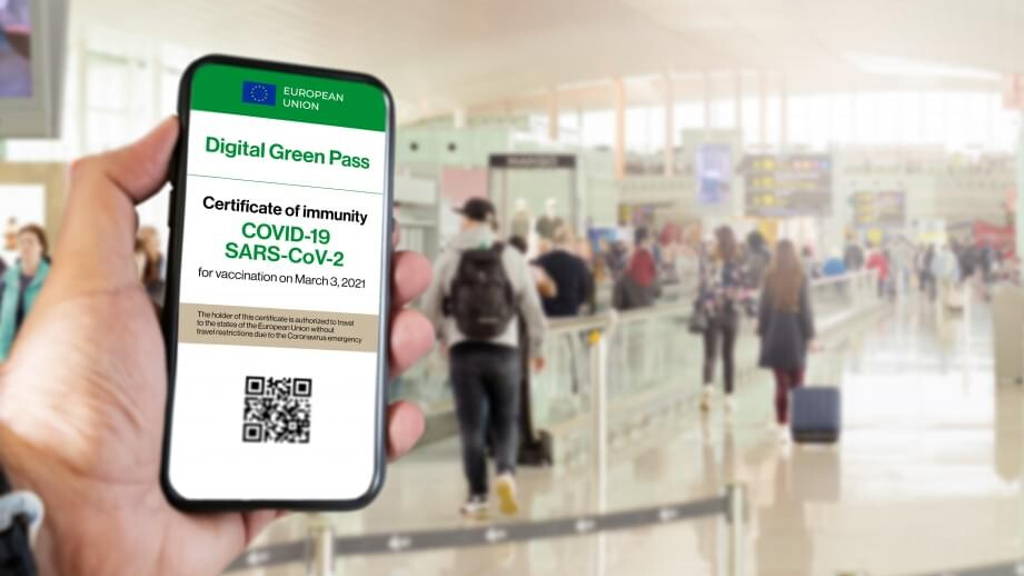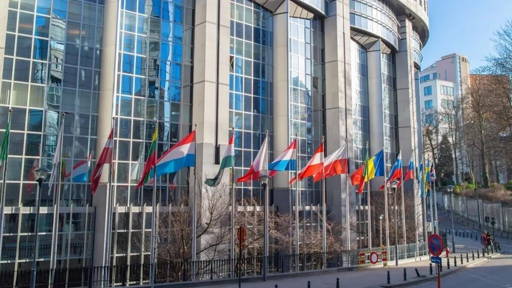The Digital Green Certificate will be proof that a person has been vaccinated against COVID-19, received a negative test result, or was infected with SARS-CoV-2 and recovered. A digital or paper version of the document is planned to be issued free of charge, with a QR code confirming the certificate's authenticity.
To verify the documents across the EU, the Commission plans to develop necessary digital infrastructure and make it possible for the member states to join it. Participation in the project will be voluntary—member states will be the ones to decide which limitations concerning public health will be lifted for the travellers who have the certificate.
While implementing the new system of COVID-19 passports, the Commission wants to reinstate free movement within the EU – a fundamental right of European citizens which was severely limited in the last 14 months. It is also aimed as a step to revive joint fight with the pandemic and its consequences. Cooperation between EU countries has dramatically suffered from disputes over vaccination deliveries and policies concerning border control or quarantine for travellers centred on particular interests.
Especially in the early months of the pandemic, the Schengen Area practically ceased to exist, as the protection of their own citizens became increasingly crucial for EU governments. One more point needs to be considered: While China's GDP is rising by 18% and the USA's economic acceleration resulting from vaccinations and successive restrictions being lifted, the fight against the pandemic in Europe is uncoordinated and apathetic. The Old Continent must swiftly revive its economy, and facilitation of travelling will end crises for, i.a. the tourism industry, providing a chance to escape the never-ending lockdowns.
Certificates for all EU citizens
The Digital Green Certificate will encompass three types of certificates – a vaccination certificate, a test certificate (NAAT/RT-PCR test or quick antigenic test), and certificates for persons who have recovered after being infected with COVID-19
Certificates will be issued in digital or paper form. Both will have a QR code with the necessary essential information and a digital signature to verify their authenticity. The EC will develop a digital gateway and support member states in developing software to enable authorities to verify all signatures on certificates across the whole EU. One of the premises is that the system will not collect and process personal data of certificate holders. Certificates will be available free of charge and in the official language or official languages of the issuing member state and English.
Equality in freedom of movement
All persons – both vaccinated and unvaccinated – will be able to use the Digital Green Certificate while travelling within the EU. To avoid discrimination of unvaccinated persons, EC proposes to create not only interoperable vaccination certificates but also certificates of COVID-19 tests and certificates for persons who have recovered from COVID-19. EU countries will thereby be able to quit restrictions which now make it practically impossible to go abroad for holidays, including, i.a. compulsory quarantine. This approach considers varied paces of vaccinations among EU countries and fears that the countries with high rates of COVID-19 vaccinations or low levels of infections might still close for outsiders for fear of subsequent pandemic waves.
Only necessary information and safe personal data
Certificates will contain a limited set of information, such as full name, date of birth, issue date, information on vaccination/test, and the unique identifier of the certificate. The data is to be examined only to confirm and verify the authenticity and validity of the certificates.
The Digital Green Certificate will be valid in all EU member states and open for Iceland, Liechtenstein, Norway, and Switzerland. It should be issued to EU citizens and their family members, regardless of their nationality, and citizens of non-EU countries who reside in the EU and visitors who are authorized to travel to other member states.
The COVID-19 passport system shall be temporary and will be suspended after the World Health Organization (WHO) declares the end of the COVID-19 international health emergency.
Will it work?
All premises of the certificates, together with reference documents and the premises of the digital infrastructure, are thoroughly characterized in the Regulation of the European Parliament and of the Council on a framework for the issuance, verification and acceptance of interoperable certificates on vaccination, testing and recovery to facilitate free movement during the COVID-19 pandemic (Digital Green Certificate).
Implementation of this solution will verify whether EU countries are ready to overcome the crisis jointly. The task is not an easy one, as currently, all countries are preoccupied with combating the pandemic whose scope is medical and political. It is a priority now to vaccinate the maximum number of citizens and end restrictions that affect the economy and increase national debts.
Considering the progress of works, it might be challenging to implement the certificates before the summer holiday season. Thus, the idea will become outdated before it is implemented – such a scenario seems quite possible not only because time goes by but also because some member states are unwilling to cooperate. In this case, travels across the EU will be marked by insecurity about quarantine rules in the coming months. Differing formats of documents confirming a vaccination or a test and the lack of clear guidelines reinforce the chaos in this area, thus raising the risk of the circulation of false copies.






